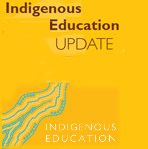Home > Indigenous Learners > Resources > Weblinks > ACER Indigenous education research
ACER Indigenous education research
The following links are key documents focusing on numeracy, mathematics and Indigenous education.
ACER's Indigenous resources
ACER works collaboratively with Indigenous learners and communities in undertaking research to inform policy, programs and practices to support improved outcomes for Indigenous learners.
Recent Indigenous education research includes:
- Improving learning in the early years
- Improving literacy and numeracy outcomes for indigenous students
- Improving outcomes and engagement in schools
- Supporting successful post-school transitions
- Improving health and wellbeing outcomes
- Contributing to professional learning
- Supporting recognition of indigenous achievement
- Improving system level strategies and approaches
Teaching Mathematics: Using research-informed strategies
Professor Peter Sullivan's ACER publication Teaching Mathematics: Using research-informed strategies aims to guide culturally sensitive approaches for improving Indigenous mathematics education
Numeracy, mathematics and Indigenous learners: Not the same old thing
This paper begins with two narratives: the first from an Aboriginal mathematician and the second from a non-Aboriginal teacher. The two stories are woven together to draw out the notion of culturally responsive mathematics pedagogy and what this might mean for educators working with Indigenous students in the teachingof Western mathematics to close the two-year gap in learning outcomes.
Indigenous mathematics: Creating an equitable learning environment
Dr Grace Sarra discusses Indigenous mathematics: Creating an equitable learning environment and initiatives such as the YuMi Deadly Centre.
Indigenous student maths achievement in context: Findings from PISA
An update about Indigenous mathematical achievement in PISA, 2014
Issues of social equity in access and success in mathematics learning for Indigenous students
Professor Robyn Jorgensen, Griffith University, has worked in the area of equity in mathematics education for more than two decades. Her work explores how the social, political and cultural contexts contribute to the exclusion
of some students as they come to learn school mathematics.
Unfinished business: PISA shows Indigenous youth are being left behind
Tony Dreise and Sue Thomson, Australian Council for Educational Research
The latest international assessment of students’ mathematical, scientific and reading literacy – the Programme for International Student Assessment (PISA) – shows that the gap between Indigenous and non-Indigenous students has remained the same for the last decade.
Using television to improve learning opportunities for Indigenous children
This is a review of the literature on the importance of early childhood learning, the nature of Indigenous learning needs, and the role of educational television programs in improving learning outcomes for preschool-aged children.
Two Way Teaching and Learning
Two Way Teaching and Learning Toward culturally reflective and relevant education edited by Nola Purdie, Gina Milgate and Hannah Rachel Bell.
Numeracy development of Aboriginal students: implications for the NSW K-10 Mathematics Syllabus
Research into the numeracy development of Aboriginal students and implications for the NSW K-10 Mathematics Syllabus. The numeracy achievement of Aboriginal students in NSW continues to be on average significantly lower than of non-Aboriginal students.

